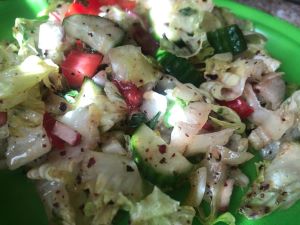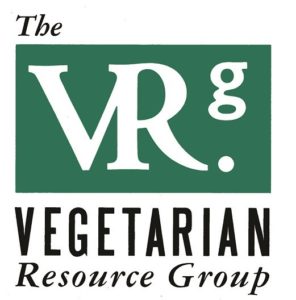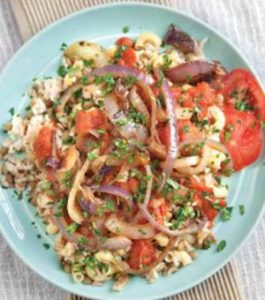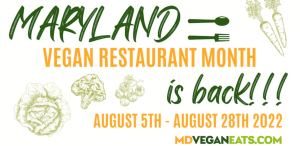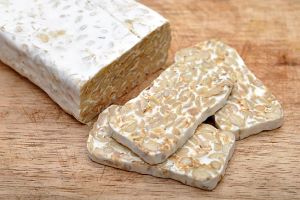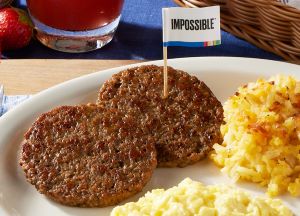Posted on
August 23, 2022 by
The VRG Blog Editor
 Photo by Rissa Miller
Photo by Rissa Miller
By Rissa Miller, Senior Editor Vegan Journal
(Makes about 12-13 pancakes)
These spicy-sweet pancakes show off a seasonal treat: Maple flavored Dandies mini marshmallows! Available for the fall of 2022, they bring in sweetness and the warmth of maple to these chai-spiced breakfast classics. And the mini marshmallows add a surprising texture too! Look for the delightful gooey pull of melted marshmallow with the crisp snap of crystallized sugars.
1-1/3 cups plain, unsweetened vegan milk (tested with almond and soy)
1 Tablespoon apple cider vinegar (or lemon juice)
1 teaspoon vanilla extract
3/4 cup all-purpose flour
1/2 cup whole wheat flour
1/4 cup organic sugar
1 Tablespoon arrowroot starch (or cornstarch)
1 teaspoon baking powder
1 teaspoon cinnamon
1/2 teaspoon baking soda
1/2 teaspoon ground ginger
1/4 teaspoon ground cardamom
Pinch ground clove
Pinch ground black pepper
Pinch ground nutmeg
Pinch salt (optional)
One 5-ounce bag Maple Dandies Vegan Mini Marshmallows
Non-stick spray, for cooking
First, combine the vegan milk and vinegar in a small dish and set aside to “curdle” the milk for about 10 minutes. Then stir in the vanilla.
In a medium bowl, combine flours, sugar, and all spices. Combine with milk mixture and allow to rest for about 15-20 minutes. The rest period allowed the batter to thicken. Add the bag of Dandies and stir into the batter just before cooking.
Cook on a flat griddle or pan over low-medium heat. Spray the pre-warmed cook surface with non-stick spray. Ladle out about 1/4 cup of batter per pancake. Allow to cook until the top and edges of the pancake bubble, and the bottoms are golden brown, then flip with a wide spatula. Any exposed marshmallows will get gooey, then crisp on the outside. Cook on the second side until the pancake is cooked through. Times will vary, but approximately 2-3 minutes per side.
The recipe will make about 12-13 pancakes. Serve as desired for breakfast, brunch, or snack time.
Note: Maple Dandies mini marshmallows are a seasonal offering and can be swapped with regular Dandies mini marshmallows or 3/4 cup dried cranberries, if Dandies aren’t available in your area. See: https://dandies.com/dandies-maple-marshmallows
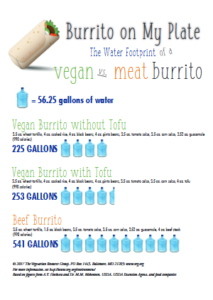 The Vegetarian Resource Group has a graphic called Burrito on My Plate, which shows viewers the water footprint of a vegan versus a meat-based burrito. It takes 225 gallons of water to make a vegan burrito without tofu and 253 gallons of water to make a vegan burrito with tofu. In comparison, it takes 541 gallons of water to make a beef burrito.
The Vegetarian Resource Group has a graphic called Burrito on My Plate, which shows viewers the water footprint of a vegan versus a meat-based burrito. It takes 225 gallons of water to make a vegan burrito without tofu and 253 gallons of water to make a vegan burrito with tofu. In comparison, it takes 541 gallons of water to make a beef burrito.